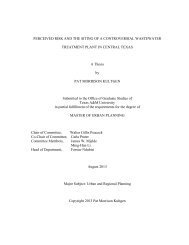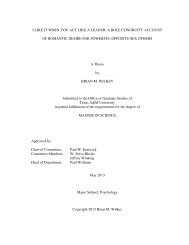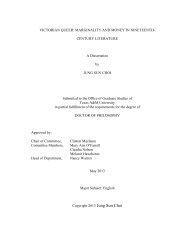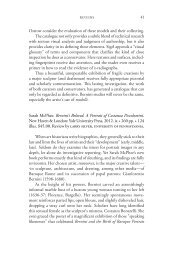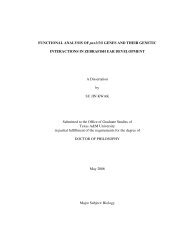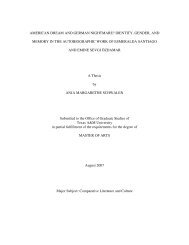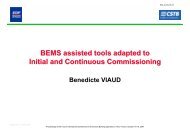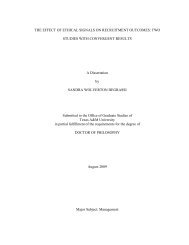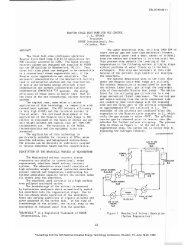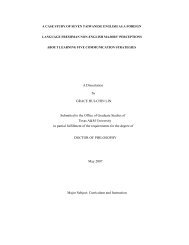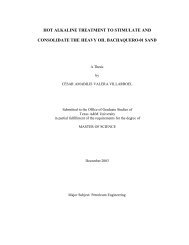INVESTIGATIONS INTO HYPERLIPIDEMIA AND ITS POSSIBLE ...
INVESTIGATIONS INTO HYPERLIPIDEMIA AND ITS POSSIBLE ...
INVESTIGATIONS INTO HYPERLIPIDEMIA AND ITS POSSIBLE ...
You also want an ePaper? Increase the reach of your titles
YUMPU automatically turns print PDFs into web optimized ePapers that Google loves.
46<br />
factors should always be investigated in dogs with pancreatitis. If any of these factors are<br />
present, they should be managed as possible.<br />
Other than that, the treatment of pancreatitis in dogs remains almost exclusively<br />
supportive and symptomatic. Fluid therapy, in some cases including plasma transfusion,<br />
is considered important in both humans and dogs with severe disease and hypovolemia<br />
and/or dehydration. 165,196,208-215 Pain management is also considered crucial in cases of<br />
both acute and chronic pancreatitis, when pain is present. 216-218 The use of antiemetic<br />
medications is recommended in cases of pancreatitis where vomiting is present. 219-221<br />
Routine antibiotic therapy is highly controversial and it is usually not recommended in<br />
dogs unless an infection is present. 155,208,222-225<br />
Finally, surgical intervention of<br />
pancreatitis is rarely recommended in dogs unless certain complications occur (such as<br />
pancreatic abscess, pancreatic pseudocyst, or extrahepatic biliary tract obstruction). 226-237<br />
A plethora of other therapeutic agents have been recommended by some authors in both<br />
veterinary and human medicine. 238-240<br />
but there is currently no convincing evidence that<br />
any of these agents is beneficial for the treatment of spontaneous pancreatitis in dogs.<br />
The role of nutrition in the management of pancreatitis needs some attention. The<br />
nutritional approach of humans with pancreatitis (especially acute pancreatitis) has been<br />
the focus of extensive basic and clinical research for several decades.<br />
241-243<br />
Unfortunately, studies in dogs suffering specifically from either acute or pancreatitis are<br />
sparse and therefore the nutritional approach in these cases is based on clinical<br />
experience. 244-251 Questions regarding the nutritional approach of dogs with pancreatitis<br />
have to do with the timing of feeding during an episode of acute pancreatitis, the route of



